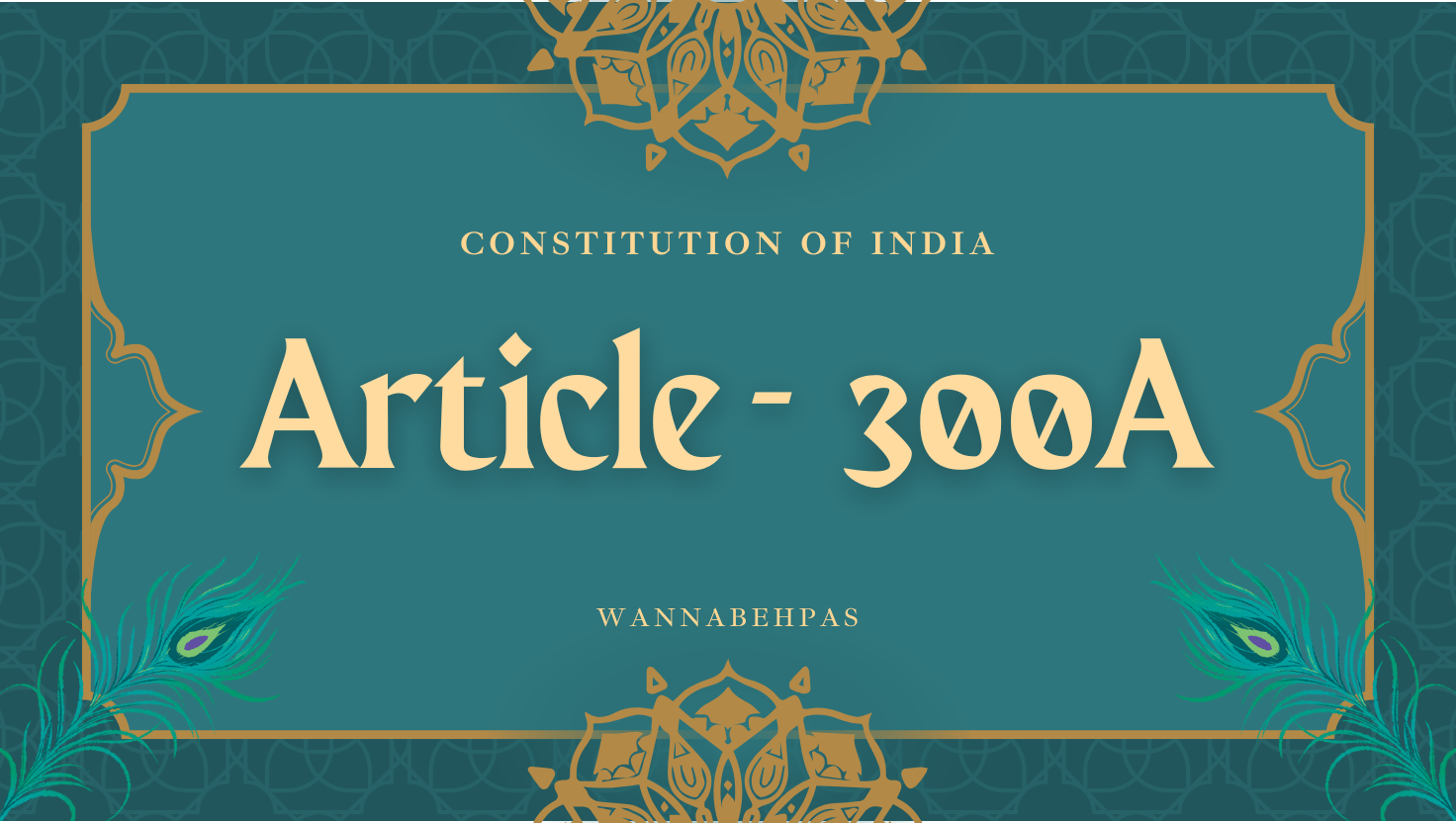Article 300A: Supreme Court Reaffirms Right to Property as a Constitutional and Human Right
Context
The Right to Property is no longer a Fundamental Right but continues to be a Constitutional Right under Article 300A and a Human Right in India. The Supreme Court recently reaffirmed this principle in a case involving the Himachal Pradesh government.
Constitutional Background
- The Constitution (44th Amendment) Act, 1978 removed the Right to Property from the list of Fundamental Rights.
- However, Article 300A was added, stating: “No person shall be deprived of his property except by authority of law.”
- This means the State cannot take away private property unless due legal process is followed.
- Although Article 300A does not explicitly mention compensation, the Supreme Court has interpreted that fair compensation is implied.
Supreme Court Judgment
- Case: The Himachal Pradesh government had taken 4 acres of private land in 1967 to build a road without compensating the landowner, a widow from Hamirpur district.
- Verdict Date: January 8
- Bench: Justices Ajay Rastogi and Indu Malhotra
- Observation: The Right to Property is a human right and part of the constitutional framework under Article 300A.
- The Court stated that when the State takes possession of private land without legal procedure, it becomes an encroacher.
- The Court ordered the State government to pay ₹1 crore compensation to the 80-year-old appellant for the violation.
Key Observations from the Judgment
- The State must follow due legal process before taking possession of any private land.
- Failure to pay compensation or obtain consent violates both human rights and constitutional rights.
- The Court highlighted that ignorance of rights due to illiteracy or rural background cannot be a reason for the State’s negligence.
Historical Context: Right to Property before 1978
- Originally, the Right to Property was a Fundamental Right under Article 31 and Article 19(1)(f).
- Article 31(1): Property could only be taken by authority of law.
- Article 31(2): Compensation was mandatory when property was acquired for public use.
- However, these provisions slowed land reforms and infrastructure projects, as people often challenged acquisitions in court.
- The 44th Constitutional Amendment (1978) deleted Articles 19(1)(f) and 31, removing the Right to Property from Part III (Fundamental Rights).
Present Status
- The Right to Property is now a Constitutional Right under Article 300A, not a Fundamental Right.
- Yet, the State is still bound to follow due process and pay compensation when acquiring private land.
- The Supreme Court reaffirmed that forcible dispossession without legal backing violates both constitutional and human rights.
Conclusion
The Supreme Court’s ruling reaffirms that even though the Right to Property is no longer a Fundamental Right, it remains central to India’s rule of law. The State cannot bypass legal procedures or deny compensation. Upholding Article 300A ensures protection of citizens’ property rights and strengthens trust in a welfare-oriented democracy.











